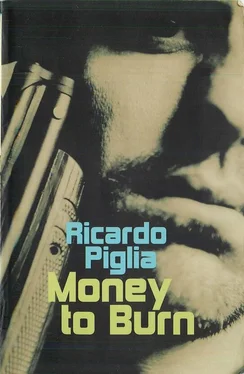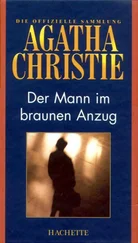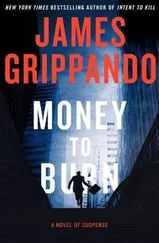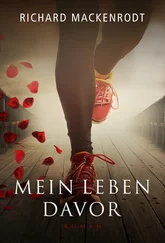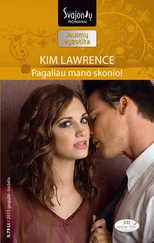Ricardo Piglia - Money to Burn
Здесь есть возможность читать онлайн «Ricardo Piglia - Money to Burn» весь текст электронной книги совершенно бесплатно (целиком полную версию без сокращений). В некоторых случаях можно слушать аудио, скачать через торрент в формате fb2 и присутствует краткое содержание. Год выпуска: 2004, Издательство: Granta UK, Жанр: Современная проза, на английском языке. Описание произведения, (предисловие) а так же отзывы посетителей доступны на портале библиотеки ЛибКат.
- Название:Money to Burn
- Автор:
- Издательство:Granta UK
- Жанр:
- Год:2004
- ISBN:нет данных
- Рейтинг книги:5 / 5. Голосов: 1
-
Избранное:Добавить в избранное
- Отзывы:
-
Ваша оценка:
- 100
- 1
- 2
- 3
- 4
- 5
Money to Burn: краткое содержание, описание и аннотация
Предлагаем к чтению аннотацию, описание, краткое содержание или предисловие (зависит от того, что написал сам автор книги «Money to Burn»). Если вы не нашли необходимую информацию о книге — напишите в комментариях, мы постараемся отыскать её.
Money to Burn — читать онлайн бесплатно полную книгу (весь текст) целиком
Ниже представлен текст книги, разбитый по страницам. Система сохранения места последней прочитанной страницы, позволяет с удобством читать онлайн бесплатно книгу «Money to Burn», без необходимости каждый раз заново искать на чём Вы остановились. Поставьте закладку, и сможете в любой момент перейти на страницу, на которой закончили чтение.
Интервал:
Закладка:
That was how they came to take the psychopath away, killing him with blows and injections strong enough to put horses to sleep, jabs that rendered him a species of zombie, of the living dead, causing all his bones to ache and leaving him unable to rise from his bed for the entire day, this assassin of defenceless women, suffocating in his straitjacket, stuffed into a cell with other madmen raving about wars and lotteries, and him lying there silently listening to his voices and to Rusita's voice begging him to kill her and one evening one of the crazies, Loco Gálvez, appeared with some curved scissors he'd stolen from the sanatorium and liberated all the enraged madmen and let them run off. That was at Christmas 1963, when everyone was preoccupied with the festivities and the Gaucho took a train to Gonnet, got out at Constitution, and began sleeping in the station, which was where he met up with the Kid, who'd recently arrived from Mar del Plata, with a suitcase, after having won a load of loot in the Casino, and whose face seemed familiar to him. They had grown up together in Batán as children, or at least had done time in a borstal there together, and so the Kid brought him along to live with him. He had this mental picture of the Kid coming along the platform, looking amused, with his case, as though he were looking for him, and the Gaucho asleep on a bench against a wall, right at the far end of the platform, when the Kid came up to him and said: 'I know you, you're from Santa Fe. You're the Blond Gaucho, we were in Batán together.'
The Gaucho's memory was functioning none too well, but when he saw that face in the early morning mist, elegant and joyful as it appeared to him, he was sure it must be true, the Kid looked so like the figure of Christ silhouetted by the station lights.
Commissioner Silva managed to slink his way towards the second floor flat and threw himself in through the ruined door, firing off machine-gun rounds in all directions. The very last gunman, Gaucho Dorda, rose unsteadily to his feet, already 'done in', made a great effort, and fired off his machine-gun without managing to hit his target, he was too weak, and Silva seemed to him to be far too far away, in the clarity of the afternoon light. So he let himself drop, like someone giving in to sleep after a night of insomnia.
With every precaution in place, the police continued their advance, confirming as they did so that two of the gangsters (Mereles 'the Crow' and Brignone 'the Kiď) lay dead on the floor, and the third was severely wounded, and on the verge of death.
Shortly afterwards the Chief of Police's call could be heard, signalling towards the street for the firing to cease, given that the criminals were no longer able to offer any further resistance. From the policemen's position could be seen the feet of one of the delinquents, lying by the doorway.
When the journalist, weathered from the battlefields, entered the apartment, the spectacle before him acquired Danteesque dimensions. No other adjective could serve to describe it. Blood flooded the place and it seemed inconceivable that three men could have achieved such decisiveness and heroism. Dorda remained alive, his back against the broken bedhead, embracing the Kid as if he were cradling a toy doll in his arms.
Two paramedics entered and lifted the wounded man, who continued smiling, his eyes wide open and an unintelligible murmur on his lips. When they took Dorda downstairs, curious passers-by and neighbours gathered on the landings, and the cops leapt on him and beat him into unconsciousness. 'A Christ figure,' noted the lad from El Mundo , 'the scapegoat, the idiot who has to bear the pain of us all.'
The police were at the point of insurrection when they learnt that one of the gunmen was to be brought out from the building alive. To the cries of 'Murderer' and 'Death to the assassin', they crowded the stretcher and beat the dying man.
When Dorda's bleeding body appeared, its bones clearly broken and, clearly visible, one eye wounded and his belly split open, yet still just alive, it first evoked a response of silence and stupor. The crowds blocked his passage, and the stretcher-bearers were forced to pause.
He was the first to come out, still alive, the first they could see of those evil-doers who had battled heroically for sixteen hours. A fragile body, with the aspect of a boxer, a sacrificial victim, and at the sight of it a wave of loathing flowed through the crowd and when the first man hit him, it was as if the world had caved in, and the dykes of rancour had been breached.
An almost unstoppable avalanche of passion was unleashed on to the luckless man.
Four or five policemen and journalists hit him with their weapons and their cameras, and the wounded gunman became a pool of blood, still living and palpitating, who seemed to continue smiling and murmuring. 'Holy Mary Mother of God, pray for us sinners,' recited the Gaucho. He could see the church and the priest waiting for him in his home parish. Perhaps if he could make his confession, he could obtain atonement, or at least he could explain why he'd killed the redhead, because the voices had told him she no longer wanted to carry on living. In contrast, he himself now wanted to go on living. He wanted to return to lying with the body of the Kid, the two embracing together in bed, in some hostel lost in the remote provinces.
The avalanche encircled him and hundreds of voices rose towards the heavy afternoon sun clamouring for his death.
'Kill him… Go on, kill him now!… Let him die!'
No one had ever seen anything like it. According to some, the collective renunciation of control was being justified then and there by the terrible and cruel pain caused to society and its laws by the criminals.
The desire for vengeance, which is perhaps the first spark in the electric shock of the human mind when it is cut into, coursed rapidly around the circuit of the crowd. And the crowd heaved: several hundred men and women from all walks of life clamouring for revenge.
The police cordons were by now useless, and the bloody mass that was once Dorda was subjected to a hail of blows from every side, kicks, punches, spitting, insults — every kind of vulgarity and brutality.
Finally he was torn from the tumult, and taken by ambulance to be transferred to the hospital at Maciel. It was 14.15 in the afternoon, and the ambulance into which they'd finally managed to board him was submerged in a human tide.
Then the Argentine Chief of Police spoke, and his voice spread like oil over the troubled waters of the hyper-excited crowd.
He requested calm, he requested pacification in order for the work of the justice system to take place, he requested a pause for meditation and profound mourning in memory of the departed.
'I've awarded him his last blow,' added Silva.
And over the heads of the crowd, in the heavy air of the afternoon, he raised his right fist, red with blood.
Tears flowed copiously down the round and sagging jowls of Commissioner Silva, mingling with sweat and the afternoon heat, the teargas which still clung lazily to the treetops and the sour scent of blood of two more policemen, dead that very morning on the threshold of the building…
Leaving, travelling against the one-way system on Canelones Street and going south, the Public Health ambulance headed towards Maciel Hospital at full speed. They haven't killed me, and they're not going to be able to kill me.' He could taste the flavour of blood on his lips and the pain of a smashed tooth and could see the whiteness of the afternoon through his clouded vision.
'My mother always knew that I was destined to be misunderstood and nobody has ever understood me, but occasionally I've succeeded in getting someone to love me. Oh father,' he said as if it were a far-off echo, 'the skewbald horse will come and carry me away from here.' Then at last he could be reunited with the Kid Brignone, in the open country, out in the cornfields, out in the quiet nights. The ambulance siren retreated, and was lost as it turned the corner of the crossroads and Herrera Street was at last empty once more.
Читать дальшеИнтервал:
Закладка:
Похожие книги на «Money to Burn»
Представляем Вашему вниманию похожие книги на «Money to Burn» списком для выбора. Мы отобрали схожую по названию и смыслу литературу в надежде предоставить читателям больше вариантов отыскать новые, интересные, ещё непрочитанные произведения.
Обсуждение, отзывы о книге «Money to Burn» и просто собственные мнения читателей. Оставьте ваши комментарии, напишите, что Вы думаете о произведении, его смысле или главных героях. Укажите что конкретно понравилось, а что нет, и почему Вы так считаете.
